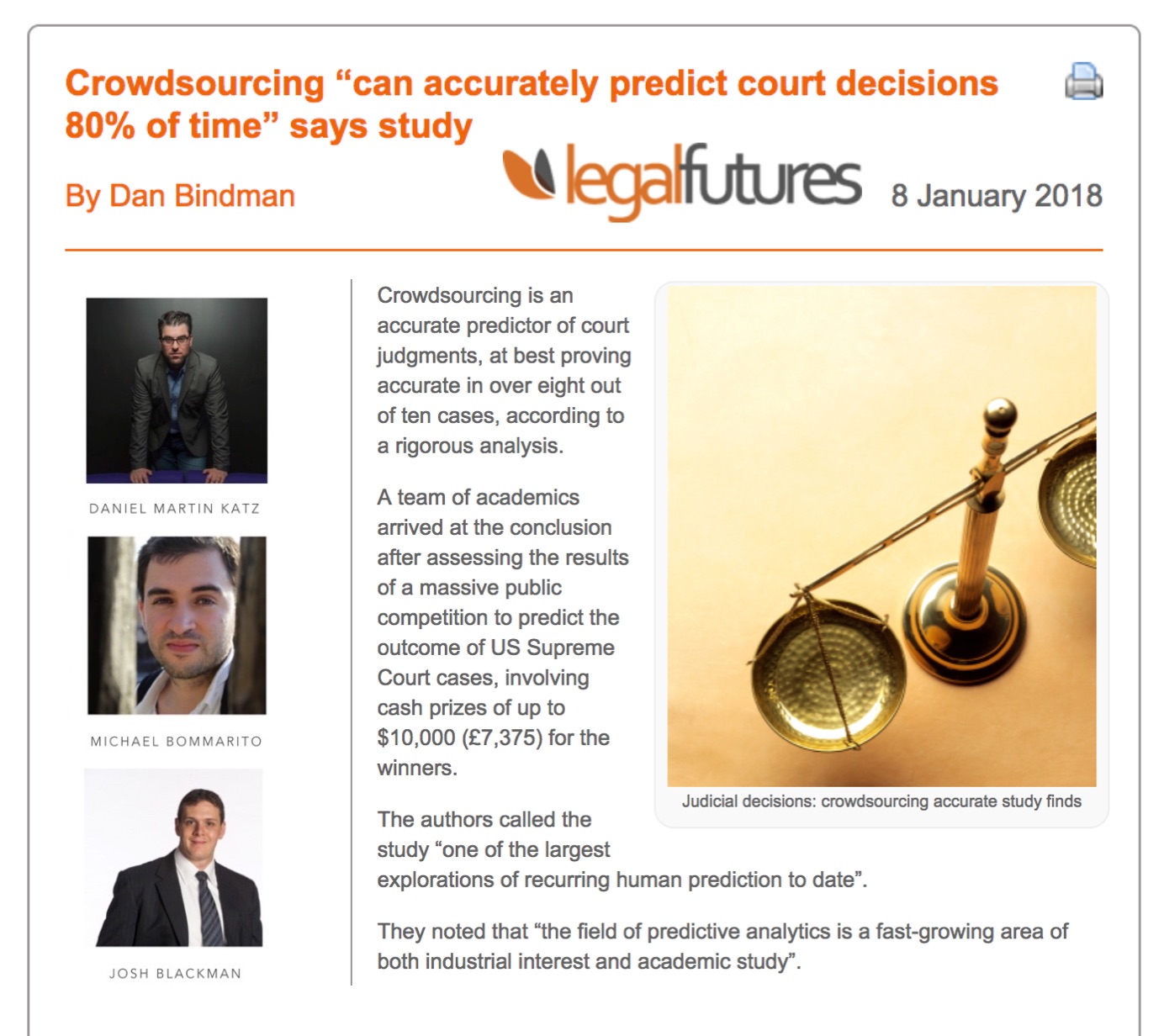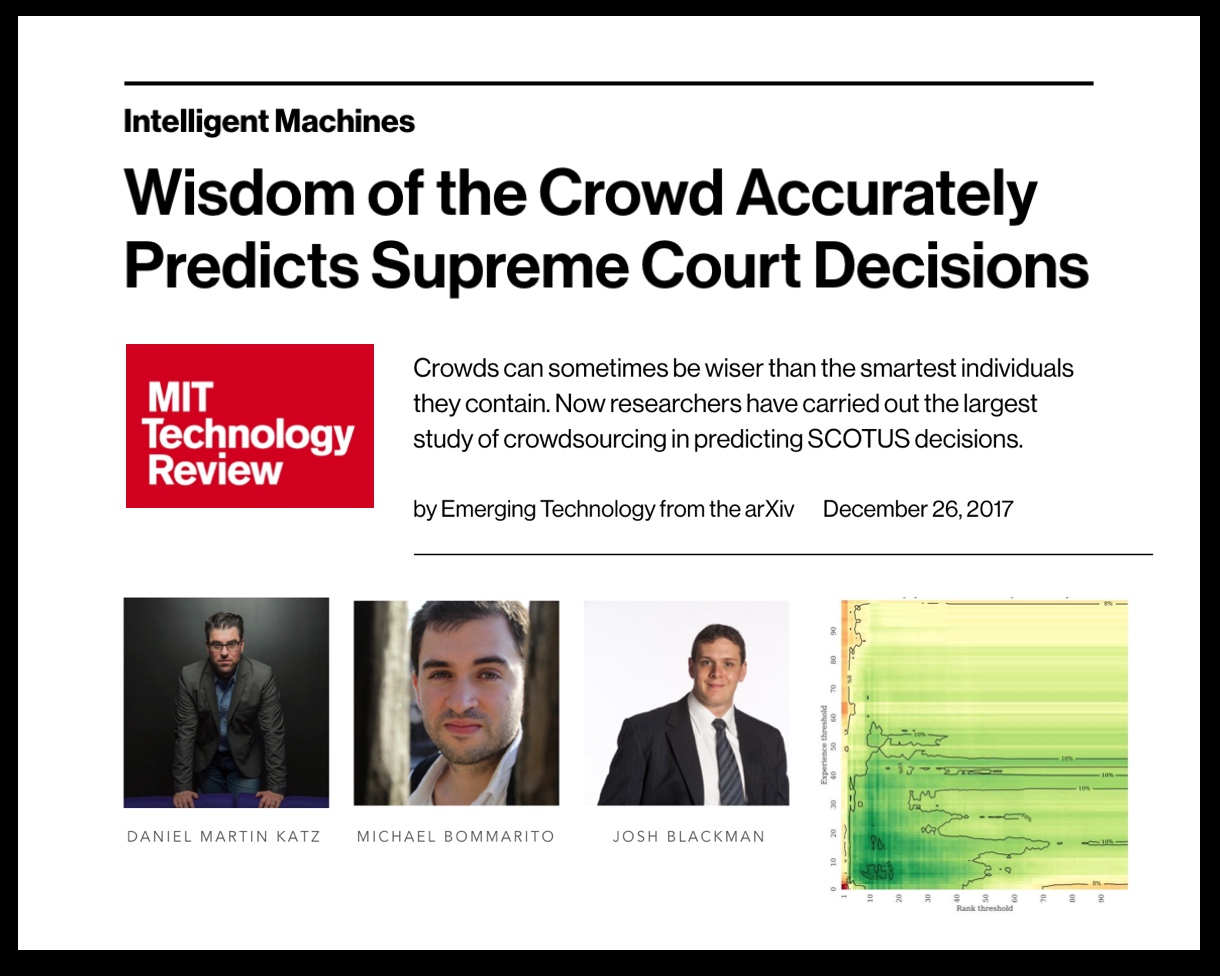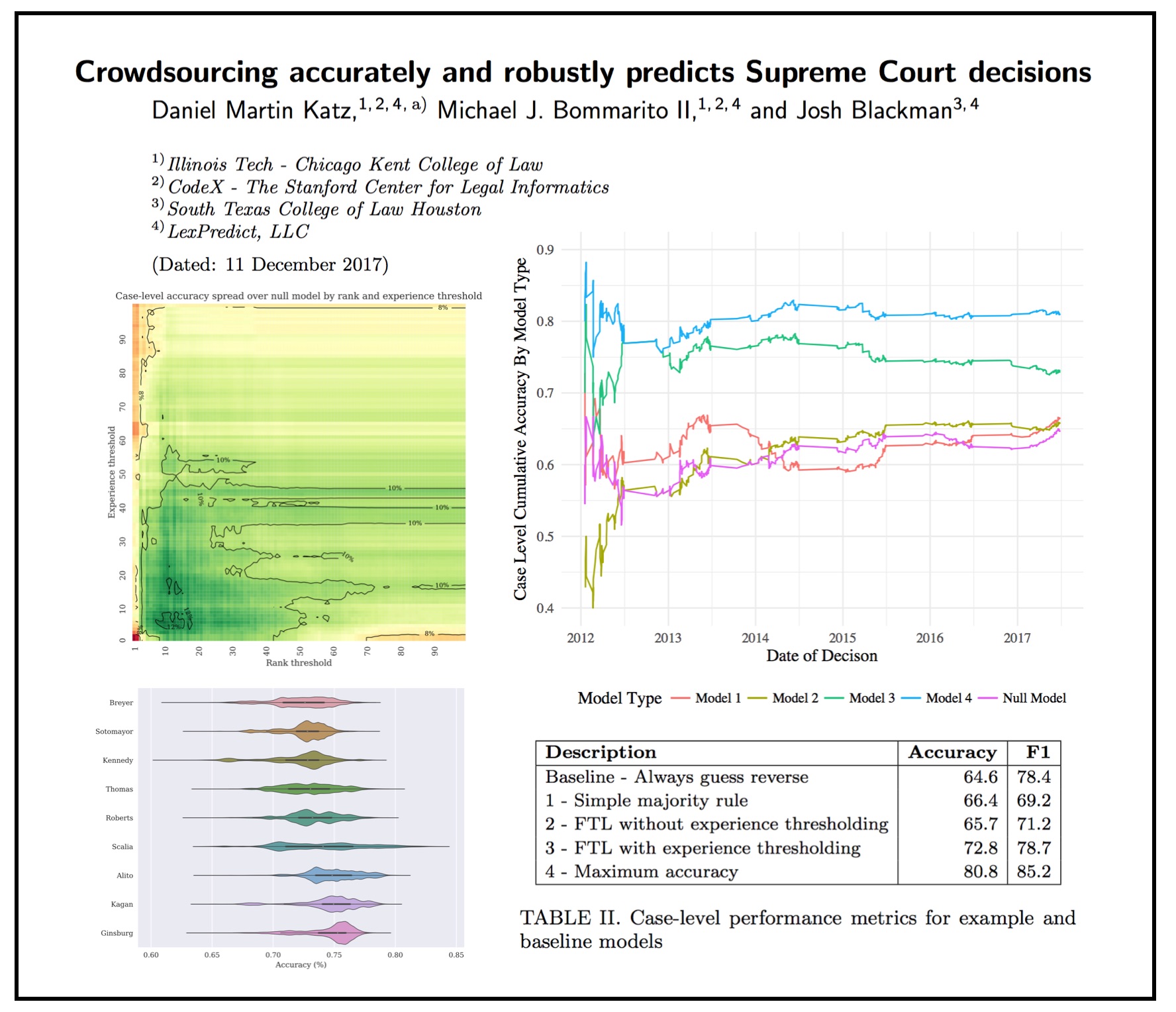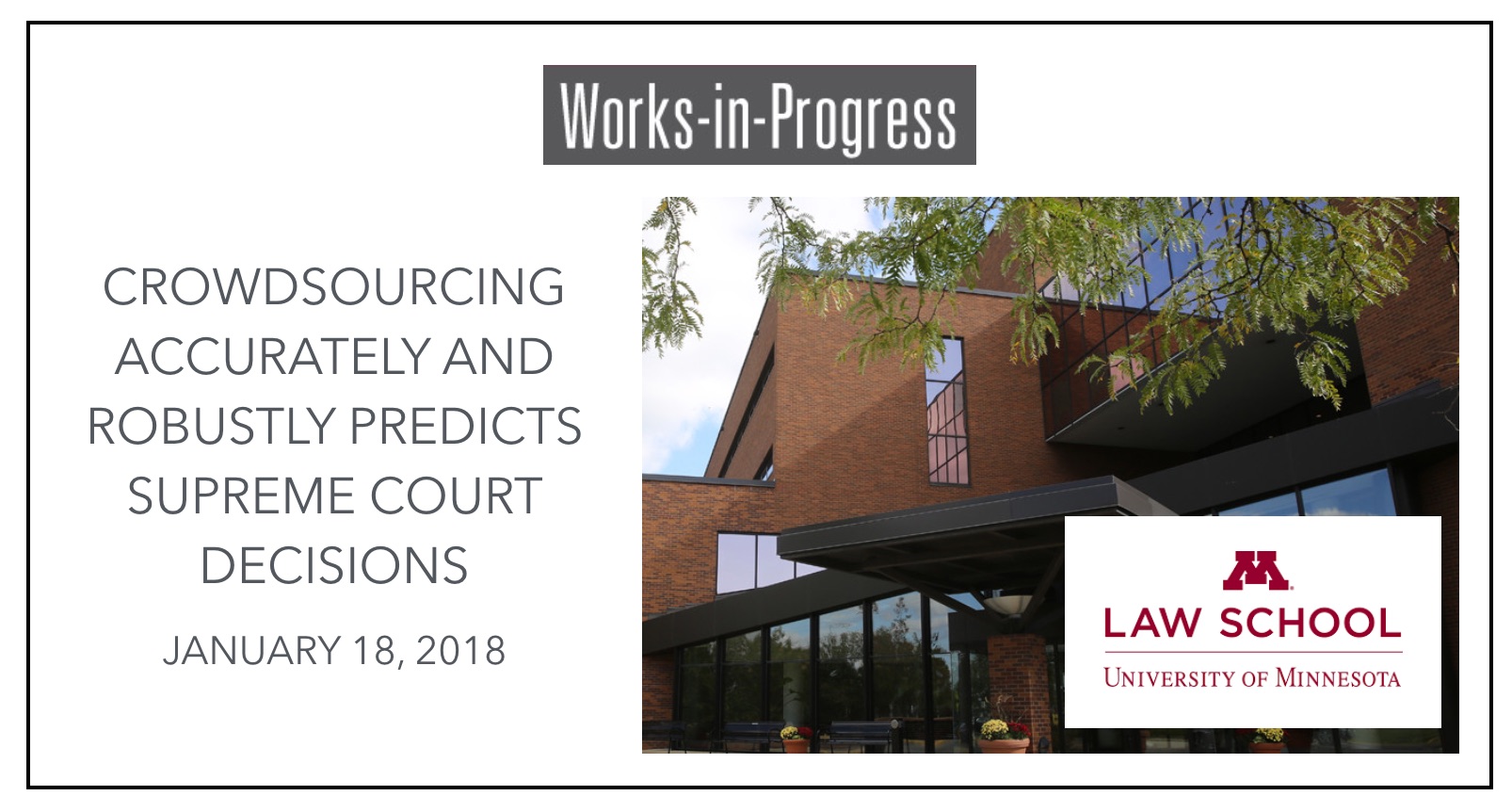 The next leg of our SCOTUS Crowdsourcing Tour takes us to Minneapolis – for talk at the University of Minnesota Law School. Looking forward to it!
The next leg of our SCOTUS Crowdsourcing Tour takes us to Minneapolis – for talk at the University of Minnesota Law School. Looking forward to it!
Tag: crowd sourcing in law
Crowdsourcing Accurately and Robustly Predicts Supreme Court Decisions – Professors Daniel Martin Katz, Michael Bommarito & Josh Blackman
Today Michael J Bommarito II and I were live in Ann Arbor at the University of Michigan Center for Political Studies to kickoff the tour for our #SCOTUS Crowd Prediction Paper — here is version 1.01 of the slide deck !
SCOTUS Crowdsourcing Paper Road Show (Presentation at University of Michigan Center for Political Studies / ISR)
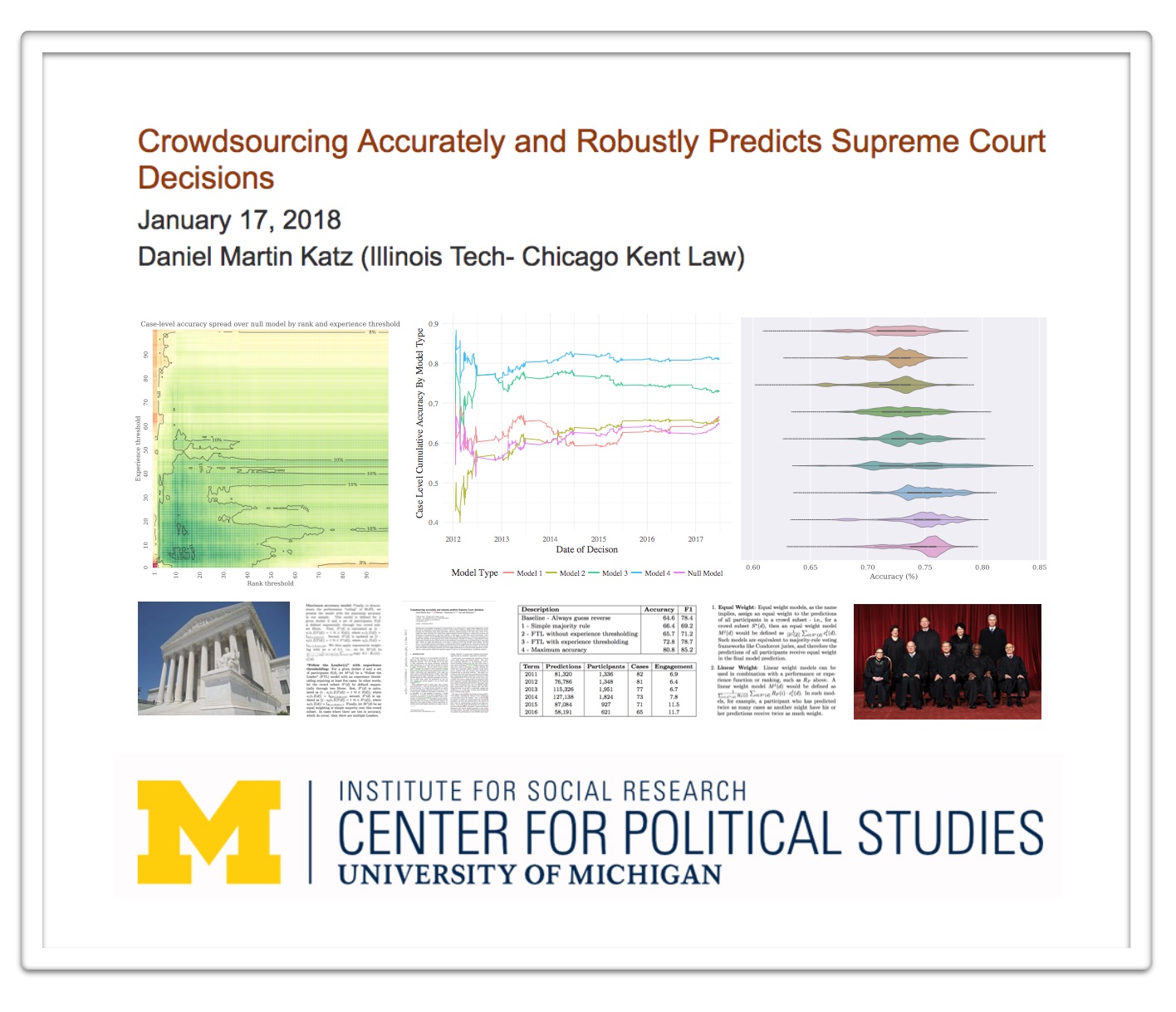 Excited to take the show on the road next week where we will be presenting our SCOTUS Crowdsourcing Paper at University of Michigan Center for Political Studies and at the University of Minnesota Law School.
Excited to take the show on the road next week where we will be presenting our SCOTUS Crowdsourcing Paper at University of Michigan Center for Political Studies and at the University of Minnesota Law School.
Wisdom of the Crowd Accurately Predicts Supreme Court Decisions (MIT Technology Review)
See coverage of our paper in MIT Technology Review and access paper on arXiv or SSRN
Crowdsourcing Accurately and Robustly Predicts Supreme Court Decisions — By Daniel Martin Katz, Michael Bommarito, Josh Blackman – via SSRN)
ABSTRACT: Scholars have increasingly investigated “crowdsourcing” as an alternative to expert-based judgment or purely data-driven approaches to predicting the future. Under certain conditions, scholars have found that crowd-sourcing can outperform these other approaches. However, despite interest in the topic and a series of successful use cases, relatively few studies have applied empirical model thinking to evaluate the accuracy and robustness of crowdsourcing in real-world contexts. In this paper, we offer three novel contributions. First, we explore a dataset of over 600,000 predictions from over 7,000 participants in a multi-year tournament to predict the decisions of the Supreme Court of the United States. Second, we develop a comprehensive crowd construction framework that allows for the formal description and application of crowdsourcing to real-world data. Third, we apply this framework to our data to construct more than 275,000 crowd models. We find that in out-of-sample historical simulations, crowdsourcing robustly outperforms the commonly-accepted null model, yielding the highest-known performance for this context at 80.8% case level accuracy. To our knowledge, this dataset and analysis represent one of the largest explorations of recurring human prediction to date, and our results provide additional empirical support for the use of crowdsourcing as a prediction method. (via SSRN)
LexSemble – A Crowd Sourcing Platform Designed to Help Lawyers Make Better Decisions
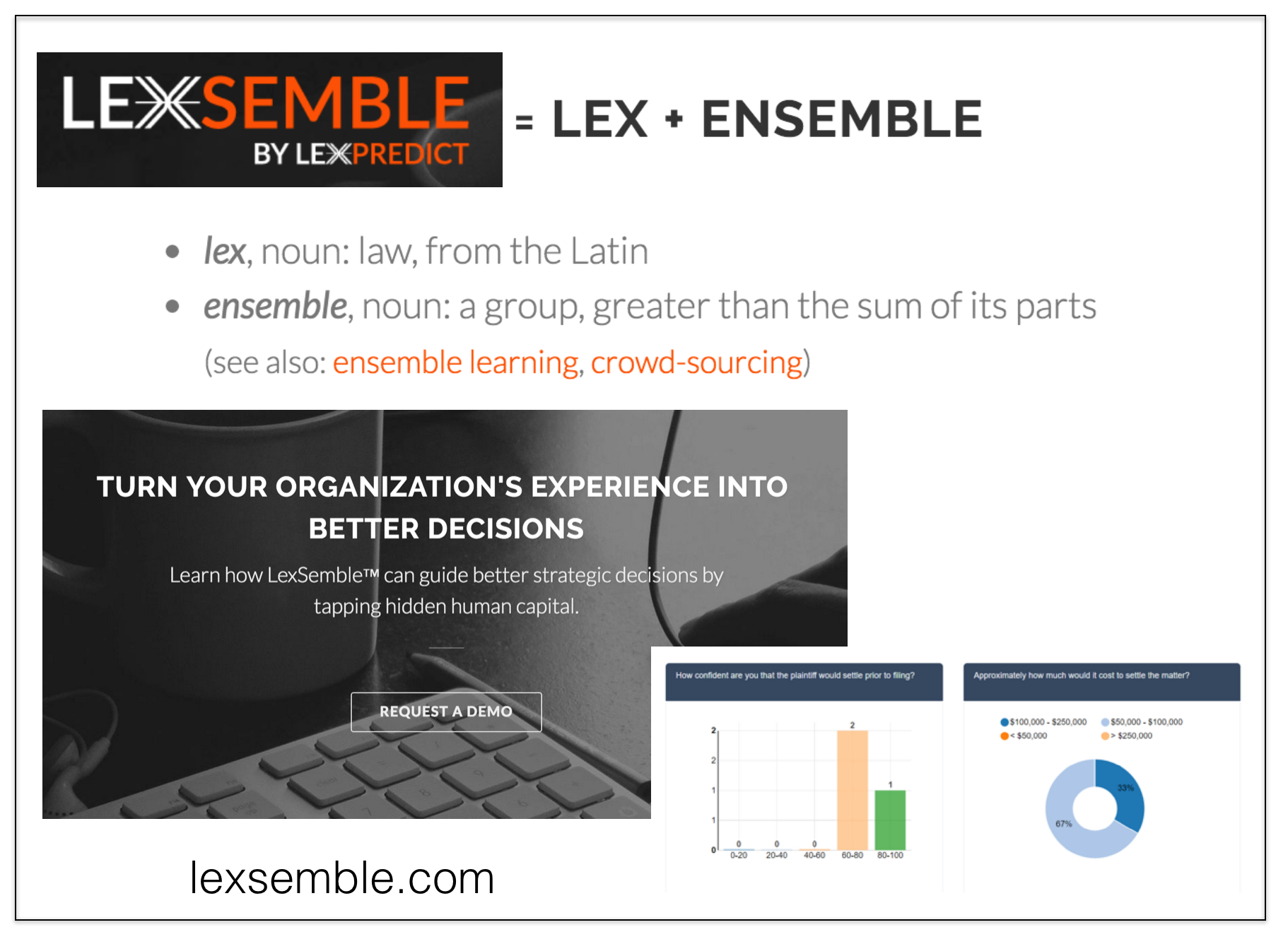
When it comes to prediction – law would benefit from better applying the tools of STEM / Finance / Insurance and so in that spirit — our company recently launched LexSemble and it allows for near frictionless crowd sourcing of predictions in law (and beyond). Many potential applications in law including early (and ongoing) case assessment in litigation, forecasting various sorts of transactional outcomes and predicting the actions of regulators, etc. It also has a range of machine learning capabilities which allow for crowd segmentation, expert weighting, natural language processing on relevant documents, etc.
Learn More: https://lexsemble.com/features.html

